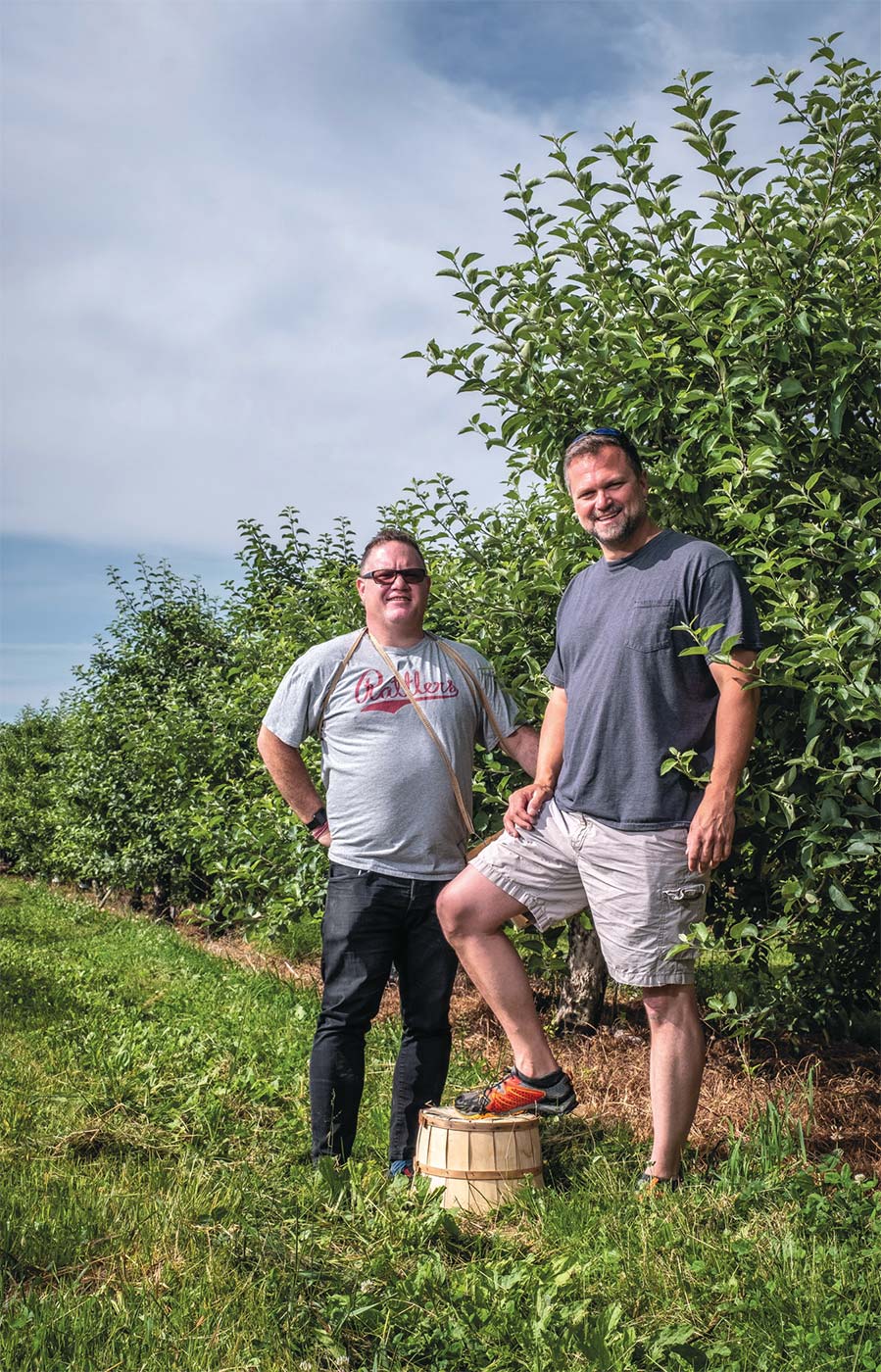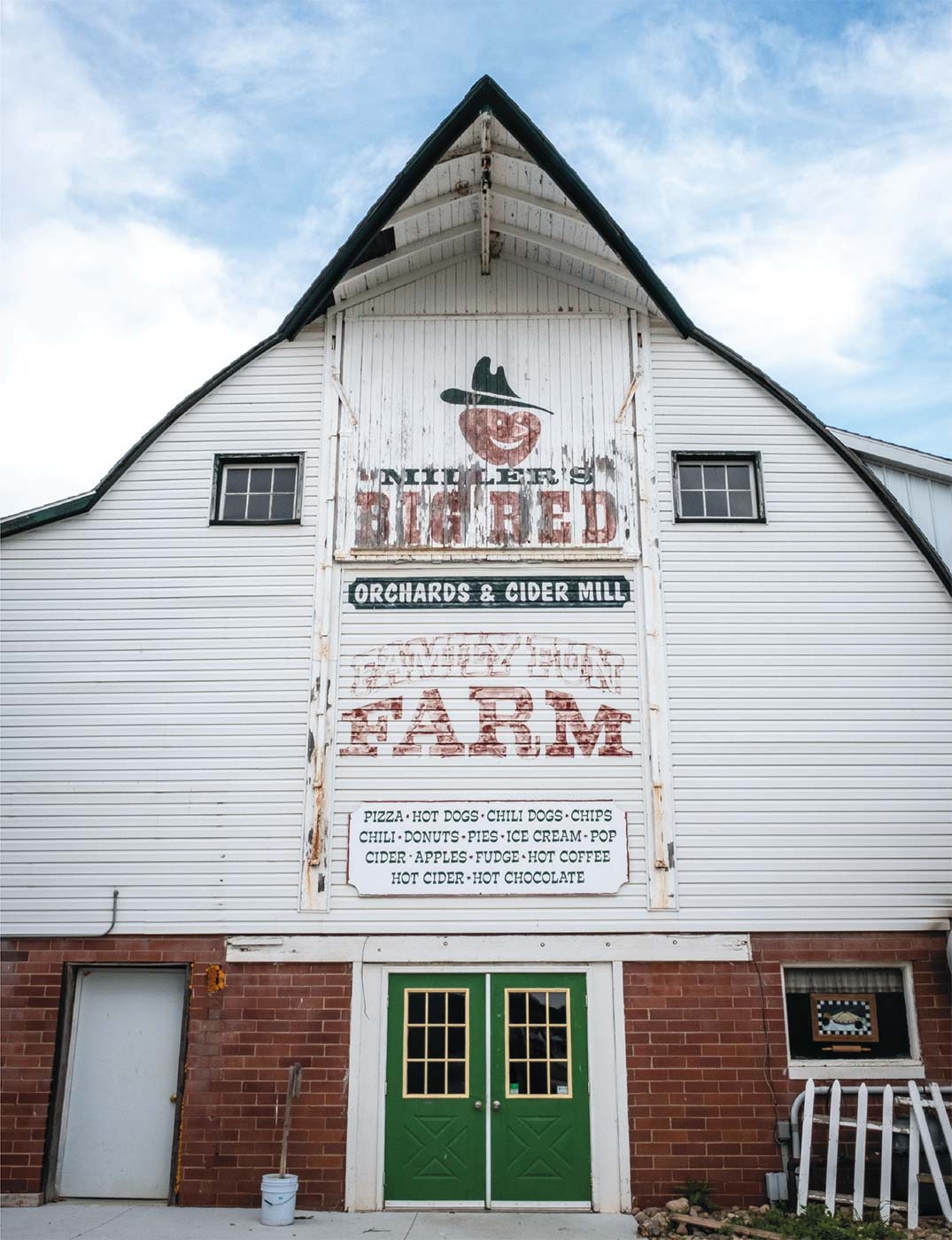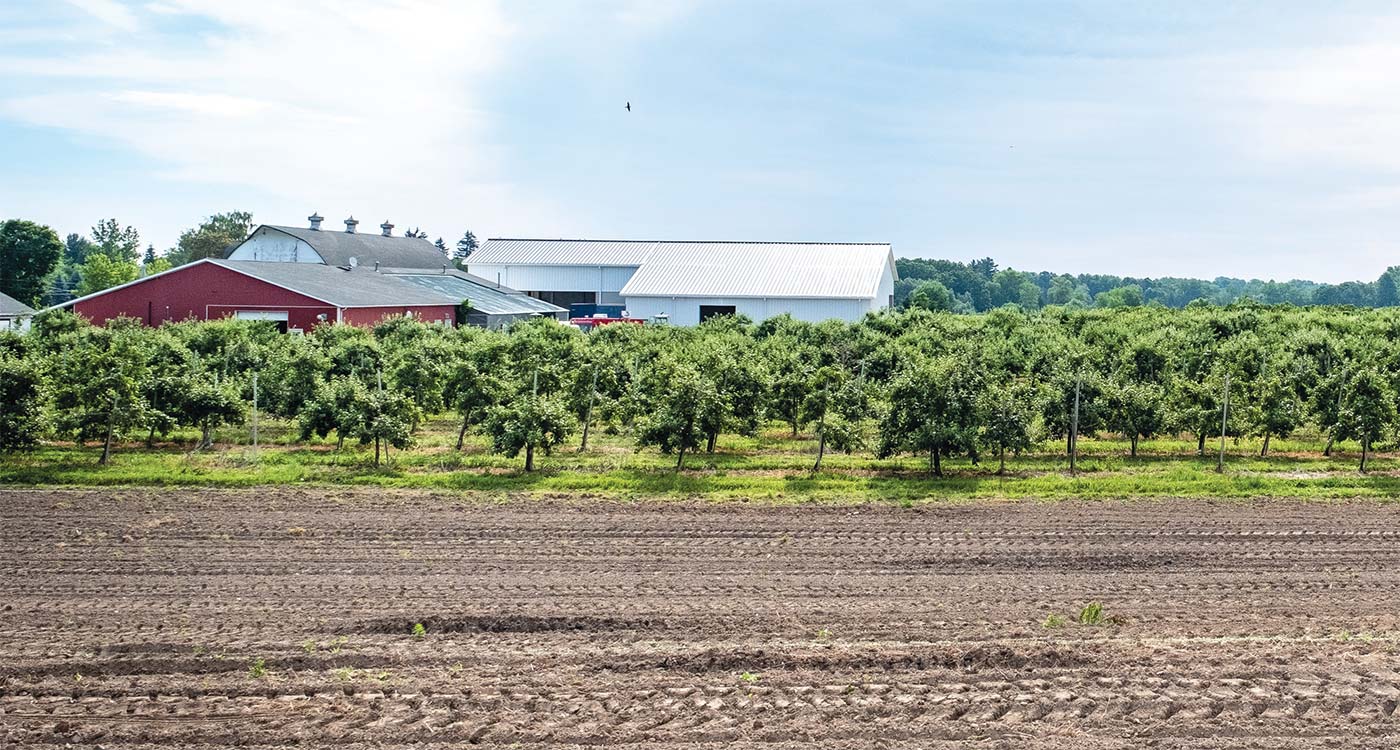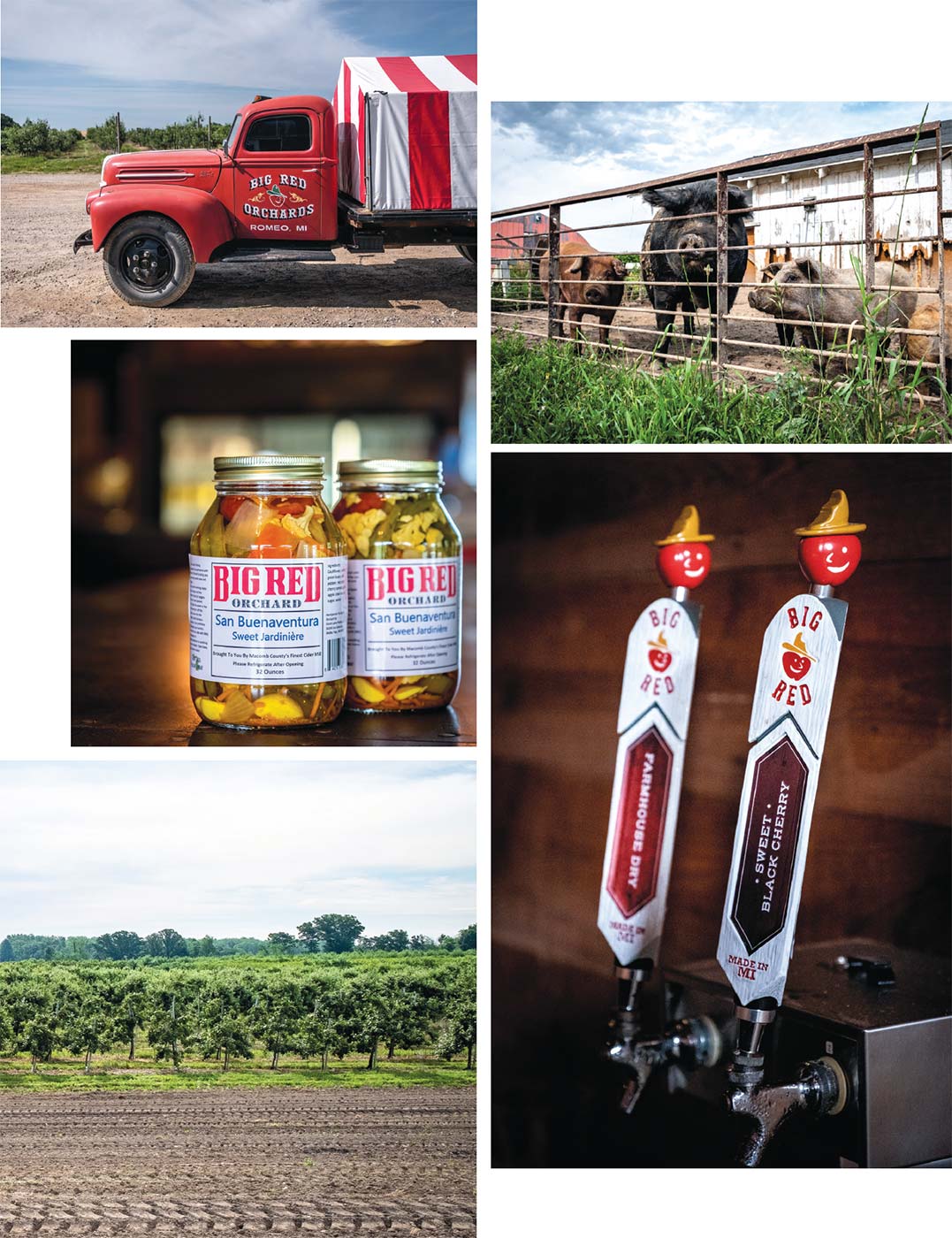New Owners Build ‘ Ground to Gut’ Vision at Big Red Orchard

Owners Ryan Moore and Jeff Mulholland
When Ryan Moore first visited Big Red Orchard in Washington Township in early 2018, he says it was “in a state of flux.” Which, to his way of thinking, meant opportunity. Moore, who was living in southern California at the time, was looking for a way back to his Michigan roots. He’d long dreamed of getting into the restaurant business and was in the midst of exploring a deal to buy the former building of the now-defunct Cheli’s Chili Bar in downtown Detroit.
But then he got a call from Jeff Mulholland, an old pal from his Cranbrook Kingswood Upper School days, about a distressed farm that Mulholland and two partners owned near Romeo. Moore, who had also been in talks with the Epicurean Group, a metro Detroit restaurant group, was intrigued.
“So I said, ‘what if instead of spending $5 million to buy Cheli’s Chili, let’s spend a little less and buy a farm and a restaurant group,’” Moore recalls. “ en we can start building this vision of true farm to table.”
Moore ended up moving to Michigan that July, buying the farm, acquiring a majority stake in the Epicurean Group and becoming its CEO. His goal is not only to create a farm-to-table experience at the orchard, but also to grow fruits, vegetables and protein for the entire restaurant group.
The first order of business was diversifying the seasonal U-pick business and increasing revenue. So in the fall of 2018, Big Red Orchard began producing hard cider and opened Beef & Jeff's Meatery & Smokehouse, a 49-seat taproom and eatery. For the first time in its 151-year history, the farm stayed open year-round. And that was only the beginning of Moore’s ambition.
Buzzing around the 90-acre farm in his four-wheel “BRO-dozer” (named for Big Red Orchard), Moore visits the pig shed, recently populated with swine purchased from the Imlay City family farm of Matt and Mike Romine, owners of the Farm Field Table butcher shop in Ferndale. Big Red Orchard will partner with the Romines to process the pork.


Then it’s on to the fields, where asparagus has already gone to seed, Michigan strawberries are ripening on the vine and a medley of vegetables are germinating.
Before planting, the Epicurean Group invited all of its chefs to the farm to help devise the planting program for their menus.
“We make our own apple cider vinegar, we pickle our own vegetables, we have broccoli cauliflower, zucchini and about a hundred different varieties of tomatoes and pepper,” says Moore. “We have 25 varieties of apples, two varieties of peaches, two varieties of plums, two varieties of cherries, two varieties of raspberries, strawberries, blackberries—and we planted currants.” at produce has already begun making its way to the plates of Epicurean Group restaurant patrons.
"This spring, we moved almost 700 pounds of asparagus through Nomad and Novi Grill in the space of two and a half weeks,” says Moore. “People were going nuts because it was fresh from the farm and so beautiful.”
Last stop is the new restaurant and aquaponics space, now under construction, where Big Red Orchard will complete its farm-to-table vision, or, as Moore prefers to call it, “ground-to-gut” vision. The yet-to-be-named restaurant is being built in the oldest building on the property, a barn that was originally constructed in 1878. Patrons will be able to view the steel tanks and canning and bottling lines of a full-service brewery, distillery and winery.
The facility will house its own garden in the form of an aquaponics system that will simultaneously grow vegetables and fish for the kitchen. Moore and Mulholland have been consulting with Detroit-based Motown Aquaponics to understand the potential for year-round indoor vegetable and fish production, and to educate its staff on aquaponics operations.
“In this room, we could have year-round vertical indoor growing,” says Moore. “We’ll have three to five acres under the roof.”

Moore and Mulholland are working toward finding opportunities for closed-loop farming and attaining organic certification, and they’ve got a start with the help of the pigs. It all began with last fall’s surplus of pumpkins, which Mulholland learned could be used as a deworming agent for swine. So all winter long, the pigs ate the pumpkins. And this fall they will start converting the farm to an organic operation by eating fallen fruit—and consequently fertilizing the soil—in the orchards.
While the pigs take care of things at ground level, Moore and Mulholland hope to bring in birds such as guinea hens to care for the trees.
“So basically the pigs eat the stuff on the ground that the chemicals would have killed; and the fowl eat the stuff in the trees, like the mites, that you would have sprayed for,” says Mulholland. at process will take a few years. In the meantime, Moore and Mulholland are staying focused on launching the farm-to-table restaurant sometime in 2020 and supplying Epicurean Group restaurants with farm-fresh produce, all the while maintaining the spirit of Big Red Orchard that has attracted families every fall for generations.
Only now, the parents bringing their toddlers to pick apples and pumpkins will have a reason to return at night.
“We have no plans to change the family fun because that’s the draw,” says Moore. “But what we’re hoping to do now is give them another reason to come back.”




